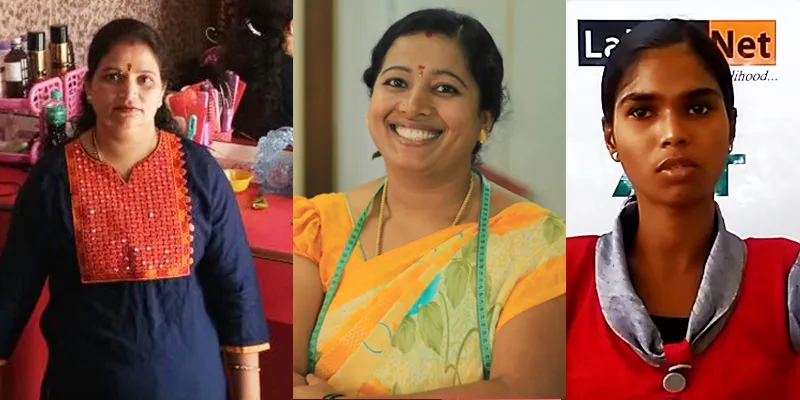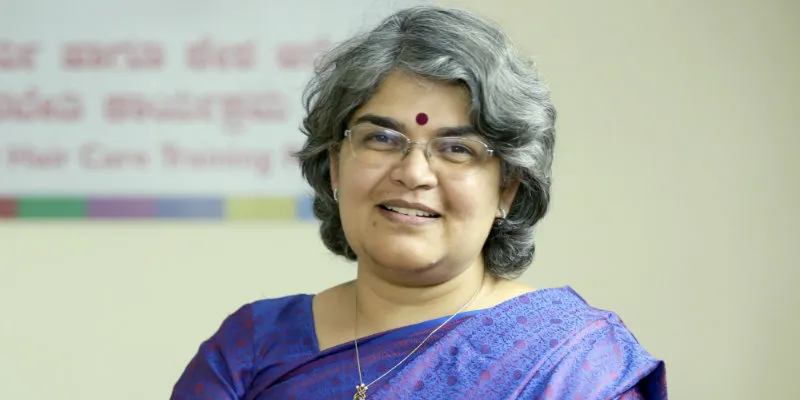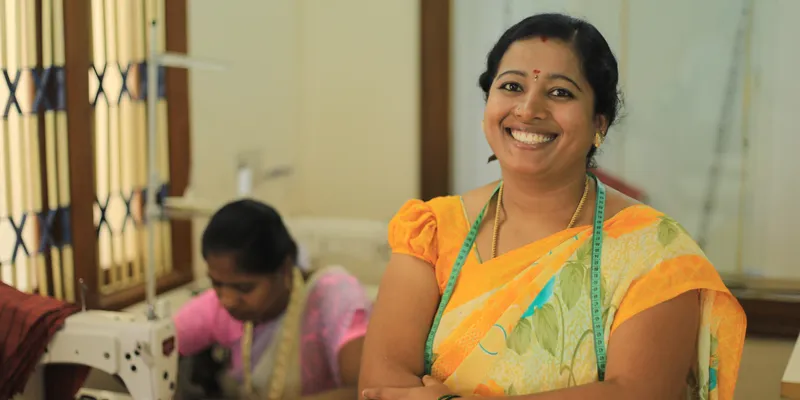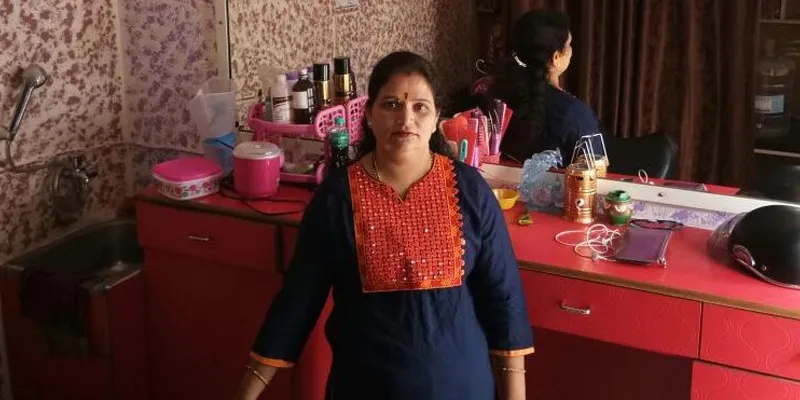How right help at the right time helped Shilpa, Jyothi, and Shobha change their lives for the better
LabourNet has brought about a visible change in the lives of these women through its programmes of skill development and micro-entrepreneurship.

In a developing and diverse country like India, small-scale entrepreneurship and skill development are not only a means of creating livelihoods for women, but also help in empowering them by improving their socio-economic status.
Empowering women means empowering entire families, and breaking the cycle of poverty.
In this scenario, entrepreneurship and employment through skill development and education go a long way in ensuring women are able to make it on their own, in their own villages and towns, thereby reducing migration to big cities.
Spearheading this self-employment and skill development movement is LabourNet, a social enterprise that believes in not just skilling, but the holistic generation of livelihoods through the three Es – Education, Entrepreneurship and Employment.
With a presence in over 28 sectors, its aim is to create social impact and add value to businesses across India through over 60 geographic clusters in 21 states.

Gayathri Vasudevan, CEO of LabourNet, believes: “LabourNet is committed to enabling livelihood of the informal sector. We are aiming at improving the real income of 20 million individuals in the informal sector by 2020 with sustainable intervention through Education, Employability and Entrepreneurship. We want to ensure that we are able to look at the entire range of employment and entrepreneurship, creating new generation jobs based on the demands of various sectors, in the manufacturing and service industries.”
She believes there will be enormous changes in the industry in the coming 10-15 years because of automation, new innovations, energy efficiency, longevity of life, and increased consumerism.
“We will strive to create jobs that will remain sustainable in the long term in our ecosystem. We believe that one-time skilling is not sufficient for a career in today’s dynamic landscape. An individual needs to stay vigilant and gain sustainability through lifelong learning. It is our constant endeavour to enable that ecosystem for every individual through our upskilling and reskilling initiatives,” she says.
Here are four stories of how LabourNet has brought about a visible change in the lives of women through skill development and micro-entrepreneurship.
Shilpa Sathyanarayan Reddy, Hosur, Tamil Nadu

Born into a low-income family with many children, Shilpa could not complete her education beyond PUC as her father, a jackfruit vendor, could not afford it.
Soon after, she married a school bus driver and had two children. When her mother passed away and her father moved in with her, her husband had five mouths to feed on a salary of Rs 16,000. Shilpa realised that she had to pick up some skills to supplement the family income.
While still at school, she was inspired by her aunt who used to earn a decent income by stitching clothes for people in the neighbourhood. Shilpa, too, picked up a bit of tailoring by observing her aunt. While her children were still very young, Shilpa made use of her rudimentary skills to mend and alter clothes of her neighbours, but the income was hardly enough to make a living. So she decided to take up a free tailoring course offered at the neighbourhood Sambhav-LabourNet centre, which she learnt about from a mobiliser who visited her house. She enjoyed the training and passed with flying colours.
Impressed by her dedication, her trainer suggested her name for a supervisor’s role when LabourNet set up a Micro Enterprise (ME) in the vicinity to turn tailors trained at the centre into entrepreneurs. It was the break Shilpa needed.
Today, as a co-owner of the Micro Enterprise, Shilpa supervises the work of 12 permanent tailors and a few temporary tailors who are hired during peak season.
The 29-year-old plans to upgrade her skills so that she can take more challenging orders to enable sustainability of the ME.
“There is no looking back now. I am managing the entire operations of this ME along with the other tailors who work here on a permanent basis,” she says.
Jyothi Abraham, Aluva, Kerala

Jyothi grew up in an orphanage in Kerala after her parents abandoned her at birth. She knew that once she turned 18 years old, she would have to move out and so was under a lot of pressure to find a job after completing her PUC.
The need for specialised skills led her to take up a retail sales course at the Parivartan Skill Development Centre, run by AVT and LabourNet.
“I joined the course and focused on learning about the retail domain and how to become a smart salesperson. The trainer helped me develop good communications skills through soft skill classes,” she says.
After completing her course, when Jyothi attended an interview at Lulu Hypermarket, she was ready for the job.
“Sure enough, I got the position and am presently working there as a sales associate, learning more and more each day,” she adds.
Shobha R, Bangalore, Karnataka

As a young girl, Shobha was not interested in studies, so she dropped out after completing Class 10.
“My family was not inclined towards education and my parents were trying to eke out a living for themselves and their children. When I left my studies, they began to look for a suitable groom,” Shobha says.
In a household that was least progressive, it was but natural that Shobha had no ambitions growing up. However, after she got married and gave birth to two children in close succession, she realised the importance of education to support the family. Her husband’s job in a private firm generated a monthly income of Rs 10,000. That was hardly enough to take care of a family of five members in a city like Bangalore.
It was then she came to know about L’Oreal and LabourNet centre in RT Nagar, Bangalore, offering beauty therapy training for disadvantaged women. Although Shobha had to commute regularly from Hebbal, where she resided, to RT Nagar, that took almost an hour by bus, to attend classes, she persevered and completed the course successfully.
During the training programme, that comprised theory, practical, and on-the-job training, Shobha got motivated to open her own parlour.
Her on-the-job training gave her the much-needed boost to fulfil her dream of opening her parlour by giving her firsthand experience of the workings of a parlour. She felt confident enough to take a loan and start her own business. Today she earns around Rs 40,000 in a month. While some of it goes in repaying the loan, the rest is used to give her family a better life.







